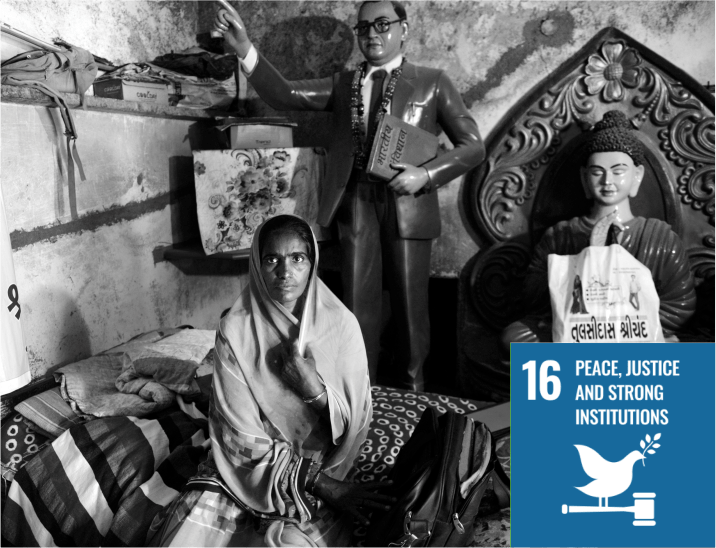SDG Goal 16 – Peace, Justice and Strong Institutions

Violence perpetrated, either abetted by hate or superiority (emanating from a sense of purity) or even to preserve caste hierarchies, correlates with a narrowing gap between the standard of living of Dalits and dominant castes in India. In part, this is because of the provision of positive discrimination. Often called ‘backlash violence’ this even translates as sexual violence directed at Dalit women.
Discrimination within criminal justice systems, fear of reprisals and consequent under reporting and notions that caste-based discrimination needs to be solved within the community rather than treated as a crime so as to preserve ‘social harmony’ – all, together put CDWD communities at a disadvantage in the move to claim their rights.
There have been instances of CDWDs refusing to perform traditional occupations facing retaliation. Resistance and punishments are a norm for young people from CDWD backgrounds nursing aspiration or exercising basic rights. For instance, in India, a Dalit groom can find it difficult to ride to his marriage on a horse like other grooms. Likewise, marriages of Dalits into other castes are violently objected to just as Dalits are frowned upon for demanding land rights, increased wages and political participation.
Dalits often face threats or harassment or even violence if they run for elections, especially to local self-governance institutions. Where they manage to get elected, they face marginalisation and find it difficult to make decisions.
Following on the footsteps of their Indian counterparts, Nepalese lawmakers too have attempted to establish several institutional mechanisms to promote Dalit rights and development. But their authority and budget remains limited.

